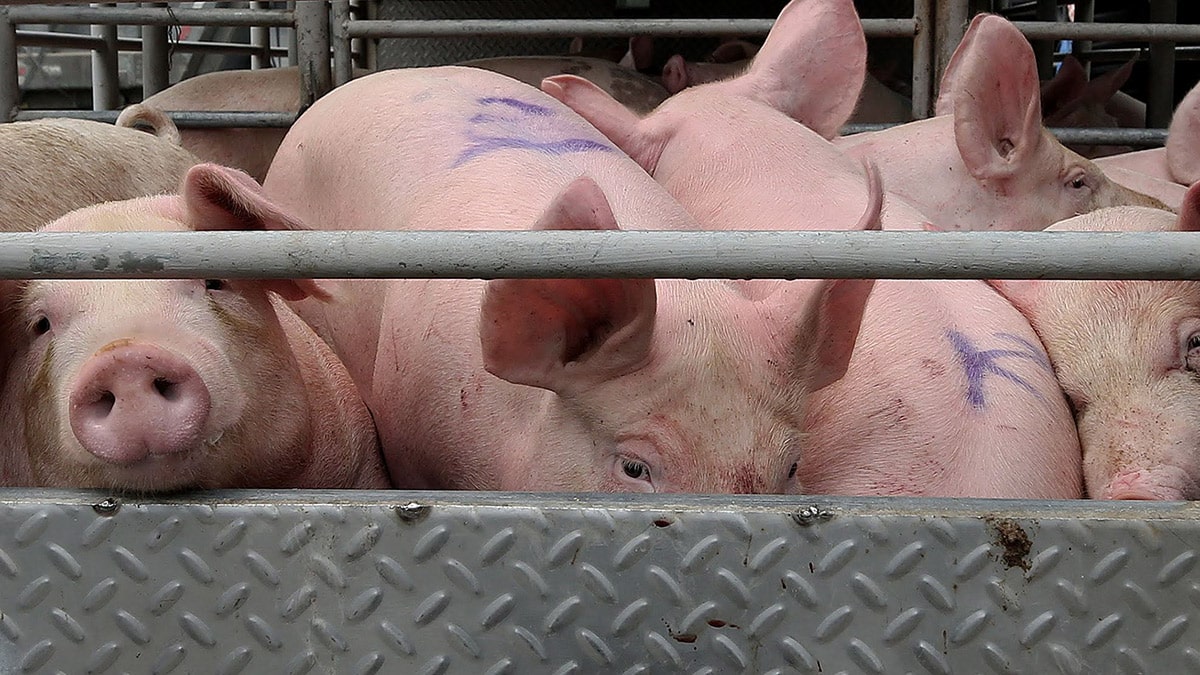
HEALTH CHECK Pigs are inspected at a livestock checkpoint in Cavite province for symptoms of African swine fever to prevent the spread of the disease. —Richard A. Reyes
MANILA, Philippines — The Bureau of Animal Industry (BAI) said on Tuesday that 11 hogs later found to be positive for African swine fever (ASF) were intercepted over the weekend at a livestock checkpoint in Malanday, Valenzuela City, leading to the animals’ confiscation.
“The pigs were condemned and buried in a central burial site as part of disease containment measures,” the BAI said in a statement. It added that the 11 hogs had shown symptoms of ASF even before undergoing testing for the disease.
Another 38 hogs in a truck that was intercepted on Commonwealth Avenue in Quezon City were allowed to pass through after the batch tested negative for ASF.
READ: African swine fever hits parts of Cagayan, Isabela, N. Vizcaya
As part of efforts to control the spread of the disease by preventing the transport of infected hogs, the BAI has set up checkpoints in the northern and southern parts of the National Capital Region.
“ASF remains a serious threat to the swine industry. The Department of Agriculture-BAI continues to enforce stricter quarantine measures to protect both farmers and consumers,” the bureau said.
READ: DA launches trial test of ASF vax in Batangas
The Department of Agriculture (DA) also urged hog traders and transporters to comply with existing rules and regulations to prevent the infectious disease from further spreading.
Based on the BAI’s tally, there were active ASF cases in 11 regions, 22 provinces, and 64 municipalities as of Aug. 8.
Vaccine test run
The DA earlier announced it would administer some 10,000 doses of an ASF vaccine bought from Vietnam as part of a controlled trial to test its efficacy.
On Tuesday, it laid down the rules for the controlled vaccination drive, with Agriculture Assistant Secretary Arnel de Mesa saying the hogs in three barangays in Lobo town, Batangas would be the first to be inoculated.
“The good thing about this is many hog raisers joined the orientation and they are very eager to participate in the actual vaccination,” said De Mesa, also spokesperson for the DA.
As announced by the department, the vaccine would be injected only in breeders and growers.
De Mesa said that aside from conducting orientation and validating the participating farms, the inoculation team would also draw blood samples first from the hogs to be vaccinated to determine whether or not there was an active infection.
Eventually, the DA intends to administer 600,000 doses to hogs in other areas outside the province.